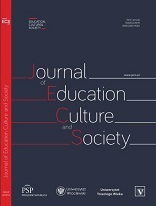The Effects of dual task (fine motor precision + cognitive charge) on proprioception
The Effects of dual task (fine motor precision + cognitive charge) on proprioception
Author(s): Sergi Segura, Ludmila Liutsko, Jose Maria TousSubject(s): Psychology
Published by: Fundacja Pro Scientia Publica
Keywords: proprioception; fine motor precision; graphomotor task; proprioceptive diagnostics; individual differences; dual task
Summary/Abstract: The aim of the given preliminary study was to check whether any changes in fine motor behaviour exist in switching from single to double task (with cognition charge) in proprioceptive sensory graphomotor test conditions. Ten students (five males and five females), aged from 20 to 30 years old, took part in the experiment - precision of tracking of the models in both experimental test conditions: without and with cognitive task (counting numbers back). The variables for assessment were obtained with use of the digitalized proprioceptive diagnostics (Tous, 2008; Tous, J.M., Muiños, Tous, O., & Tous J, 2012) of Mira y Lopez laboratory (University of Barcelona) that transformed the measurements of drawn lines on a touch screen from pixels into millimetres. As results showed, in the proprioceptive test condition, the changes in deviations related to spatial (lineograms) or line length variability (parallels) did not reach any statistical significance; while the changes in line length performance (lineograms) were found significant (that corresponds to inhibition-excitatory balance of nervous system).
Journal: The Journal of Education, Culture, and Society
- Issue Year: 5/2014
- Issue No: 1
- Page Range: 79-86
- Page Count: 7
- Language: English

